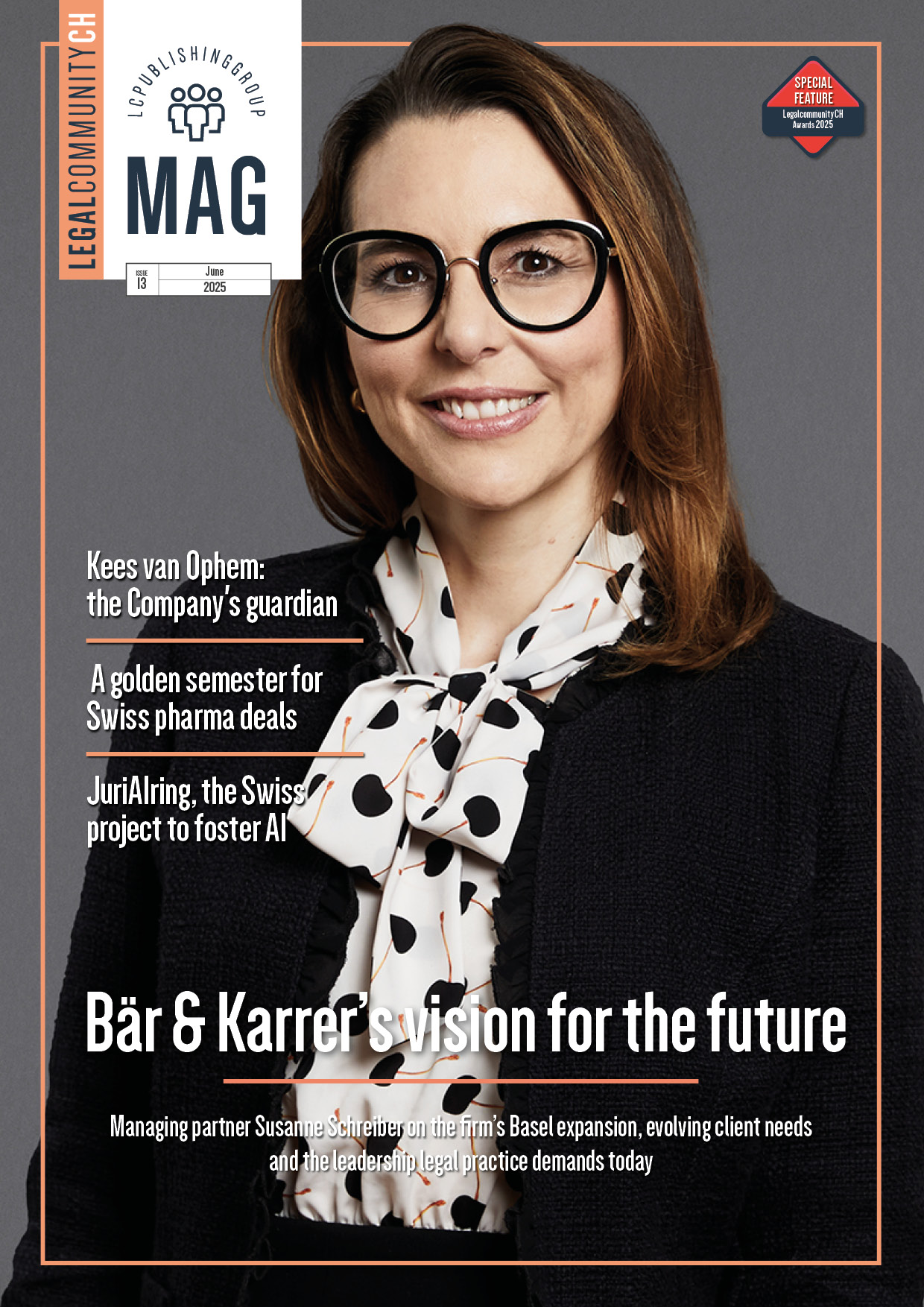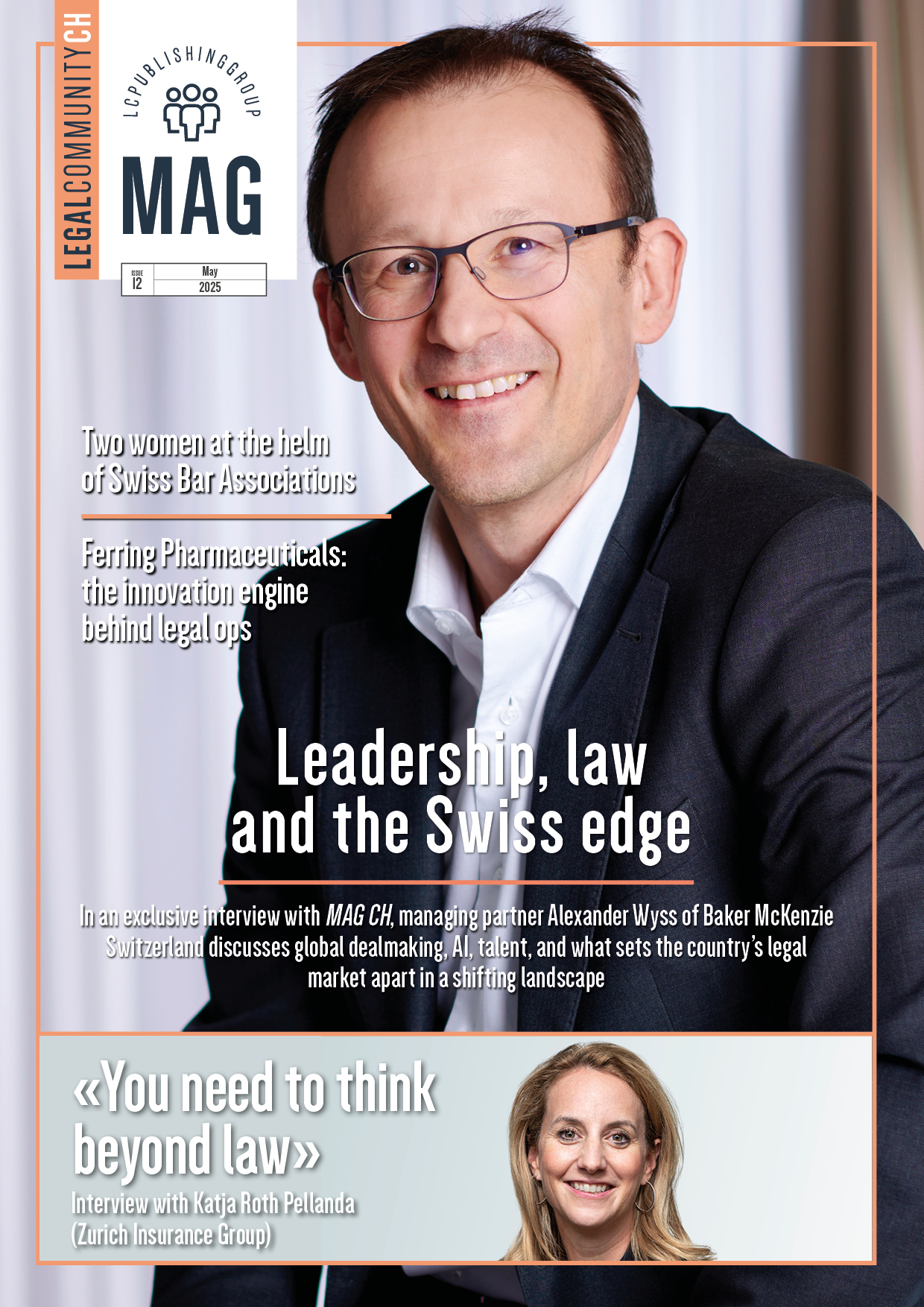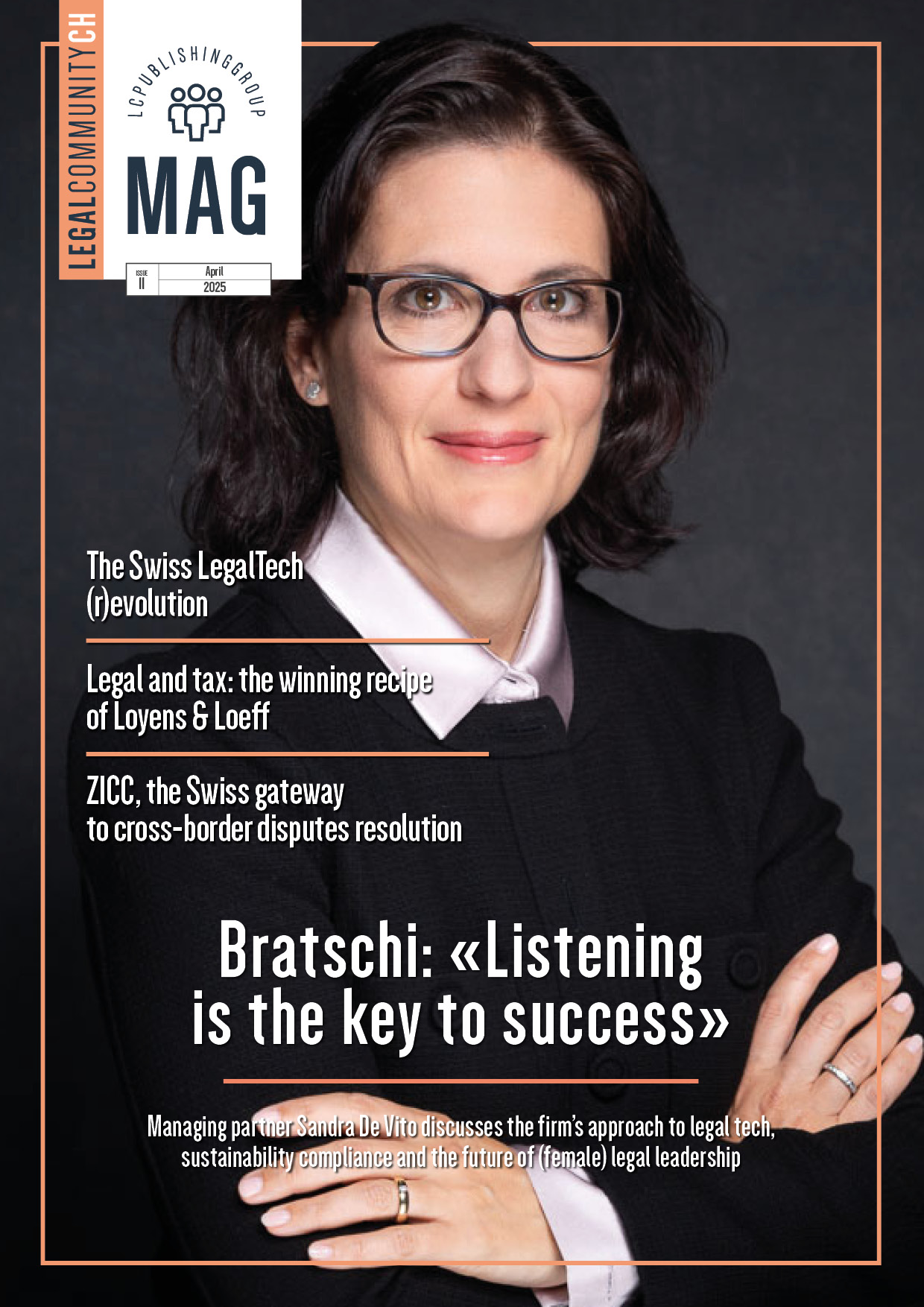Crypto economy: how to keep the (legal) pace of innovation
In recent years, crypto economy has become an important investment area on the market, considering all the related crypto technologies. This is a sector where innovation evolves at the pace that needs to be balanced with the regulatory aspects and the existing legal framework. Founded in June 2017, Crypto Finance is a Swiss reality that well represents the dynamism of the sector. There is no mystery that Switzerland is becoming more and more a land of great promises for blockchain and crypto assets.
With offices in Zurich and Zug’s Crypto Valley, in 2020 the company – which wants to make a positive contribution to the spread and creation of blockchain technology – closed a Chf 14 million series B investment round. «We managed the legal side of it internally, in close cooperation with our founder and CEO», Simon Trippel, (pictured) general counsel of the group, tells MAG. But for them the challenges continue. Trippel himself made it a personal challenge: after a long career in-house in three large banks, he returned from his early retirement to work in Crypto Finance, truly fascinated by the opportunities of the crypto sector.
How would you describe the legal department at the Crypto Finance Group?
It is a very lean in-house legal function with direct access to all management levels and business areas. It supports the Crypto Finance Group’s broad range of innovative blockchain and DLT-related business activities in all legal and regulatory matters, including representation with regulators and the authorities. Most of the work is done in-house. For special tasks requiring niche know-how or if we need to extend our internal resources, we employ external counsel under my instruction and supervision.
What are the main challenges that you’re facing at the moment?
Well, as in any legal department, one challenge is matching business expectations with available resources and limited external costs. Keeping up with relevant legal and regulatory developments relating to the crypto and digital asset space and balancing this with the ongoing daily legal work can sometimes be a stretch. To meet these challenges, we may consider outsourcing some of the repetitive “commodities” like routine legal work on a retainer basis going forward.
Crypto sector is constantly evolving. What are the main legal implications of this situation?
This can create legal uncertainty, depending on the jurisdiction. Legal qualification of certain crypto assets and how to deal with them under applicable financial market regulations is often not straightforward. This increases the need for qualified and sound, business-minded legal advice and support. With the existing guidance provided by the Swiss regulator FINMA and the new Swiss DLT Act, the legal and regulatory situation in Switzerland is becoming more and more attractive for blockchain and DLT-related business models.
In 2020, you closed a Chf 14 million series B investment round. But are there any other project you’re working on?
There are several projects in the pipeline, but one in particular is close to my heart. There are no licensed securities firms for crypto assets in Switzerland, with the exception of two licensed crypto banks. Being a bank has its specific burdens, and if you do not want to go into banking and compete with the multitude of existing traditional banks, you have to look for other options. This is why we have been working to get a stand-alone securities firm license from the Swiss regulator FINMA for a while and now are quite advanced in this process. Being optimistic, in the near future the hope is to become one of the first prudentially supervised regulated securities firms authorised by FINMA in Switzerland to trade crypto assets and in particular asset tokens.
What do you find most interesting among the current challenges in blockchain technology?
The most interesting challenge for me is how to deal successfully with the combination of new and promising innovations and technology within the existing legal and regulatory concepts. Both opportunities as well challenges arise out of these developments. This also includes an ongoing dialogue with relevant regulators to explain what your business does or wants to do and how it fits into existing regulations so that regulators can feel comfortable with it.
Do you think the current market situation in a Covid-19 world is an opportunity for this sector? Why?
Every crisis and every new technology can provide opportunities. The challenge is to recognise and exploit them successfully before others do. This is primarily an entrepreneurial challenge and less of a legal task, but the in-house legal function can and has to support and foster that.
So, what landscapes do you foresee?
With the massive additional public spending due to Covid-19 support and the existing large public deficits becoming even more gigantic, the trend and need for crypto assets and DLT technology will increase. This could take the form of private crypto assets, decentralised finance projects, tokenisation of traditional securities and other assets, and possibly even legal tender issued or guaranteed by central or traditional banks in digital form, complementing or substituting traditional currencies. The related blockchain and DLT business projects and models will definitely benefit from this. However, how quickly and where exactly this will actually happen is difficult to predict.
You have a long career. How do you think the role of general counsel has evolved throughout the years?
The role of general counsel has evolved considerably over time, as the role of the in-house legal function generally has, too. When I began working as a lawyer over three decades ago in private practice, it was not cool to go in-house. In-house counsel was regarded as a less competent legal advisor who had managed to get an internal role, but could not be relied on like an expert external counsel. This has completely changed today, as even successful partners of major law firms apply for in-house GC positions.
A true change…
I am convinced that the role of general counsel has gained relevance for decision makers and accordingly increased its influence over the years, depending on the internal and external support model that has been chosen. That also means that the GC role has become more visible and is exposed to internal pressure and external challenges. As a GC, you have to establish and maintain a supportive and trusting relationship with business operations and understand what it is currently doing and where it wants to go to in the future. However, at the same time, you have to maintain your independence and an unbiased judgement to be a trusted adviser, who provides robust, accurate, and sustainable legal advice and support for the long run.
What skills do you feel are complementary to the legal expertise to act as an in-house leader today?
Besides the mandatory, very sound legal knowledge and the necessary expertise in your field of activity, acting with integrity, persuasiveness, and the necessary element of creativity to address and solve problems has become even more important today. Striving to be a role model with regard to your personal compliance with external regulations and internal policies is also a necessity for you to be a credible legal leader. It also helps if you are lucky in picking the right job, competent superiors, nice peers, and capable subordinates. Finally, and this should not be underestimated, you should really find purpose in the business and like the people you work with, support, or manage.
THE INTERVIEW IS ALSO AVAILABLE IN OUR MAGAZINE MAG.
















